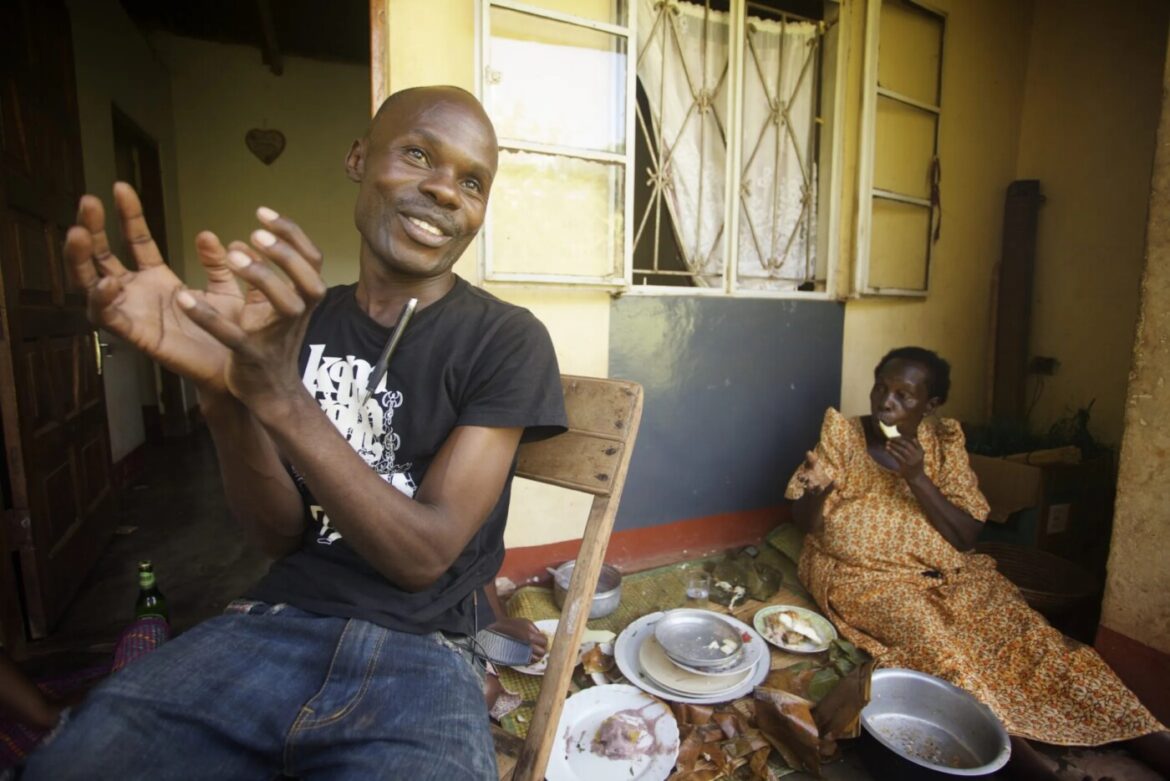Pride Month isn’t about hanging a rainbow flag and partying so hard you have to call in sick come Monday morning. It’s about uplifting the voices in the LGBTQIA+ community with care and clarity.
Frameline47 will do so in a massive way (more on the annual San Francisco celebration of LGBTQIA+ filmmaking next week) mid-month. This week, let’s focus on other entertainment purveyors showing pride at this crucial and dicey global moment when rights and stories are being silenced, even erased, in horrifying ways.
At the Smith Rafael Film Center from June 9-11, the California Film Institute curates a small but meaningful weekend of programming, from a documentary that’s gained resonance due to deplorable new laws in Uganda to a collection of queer shorts that support people’s need to see themselves represented onscreen.
Here’s a rundown of the Film Institute’s first Pride series, and some information about an unrelated gem at the Berkeley Art Museum and Pacific Film Archive.
Alarmingly relevant is Katherine Fairfax Wright’s and Malika Zouhali-Worrall’s 2012 documentary “Call Me Kuchu.” The prescient film follows the late David Kato as he, along with Anglican Bishop Christopher Senyonjo and other activists, attempt to stop legislation that would make being gay a death sentence — a reality confronting gay people today, as Uganda’s President Yoweri Museveni recently signed into law anti-LGBT legislation. Kato, the first openly gay man in Uganda, fought to stand up for injustice and paid the high cost. The film telling his story will infuriate and outrage; as will its scenes involving evangelical groups and how they’re shaping a narrative in Uganda. Yet “Call Me Kuchu” also is a tribute to Kato, a brave, unsung hero. Fairfax Wright will be in attendance for an onstage conversation after the 1:30 p.m. Sunday screening.
Pride’s kickoff feature, the lively and engaging 2002 documentary “The Cockettes,” retains its status of being a local treat long after its release. Directors Bill Weber and David Weissman chart the birth and rise of the gender-bending group that delighted San Francisco with its sexy, saucy, wild tuneful midnight shows at the Palace Theater in North Beach in the late 1960s and early 1970s. Weber will be joined along with members of The Cockettes onstage for a conversation after the 7 p.m. Friday screening.
Bay Area native and resident Aurora Guerrero’s “Mosquita y Mari” shines a light on the unexpected attraction between two 15-year-old Latinas in the Huntington Park area of Los Angeles. The lovely 2012 film illuminates the Mexican-American experience as it depicts a tender story about two girls wrangling with inner and outer struggles. Guerrero will appear for an onstage conversation after the 7 p.m. Saturday screening.

There are two shorts programs: “Queer Shorts for the Whole Family” which is free (but tickets are required), features an eclectic mix that includes Sally Rubin’s animated “Mama Has a Moustache,” Luri Moreno’s “The Girl Behind the Mirror,” with a protagonist who is trans, Gabriela Garcia Medina’s family drama “Bertie, the Brilliant” and Bret Parker’s “Pete,” which concerns gender identity. It starts at 11 a.m. Sunday.
“Bay Area Queer Short Program,” with seven shorts and running under 80 minutes, is at 4:30 p.m. Sunday. The films include: Ephi Stempler and Lauren Veen’s “The Girl That Got Away, an award-winner in which a San Francisco Mexican-American actor debates a major move that could shake up a career; two from director TT Takemoto: the experimental “Semiotics of Sab” framed around gay Japanese-American actor Sab Shimono who was born in Sacramento and “Sex, Politics & Sticky Rice,” featuring conversations with five Asian-American lesbians; Oakland-based filmmaker Florencia Manóvil’s “From X to Z” about a Gen X butch grumbling about “kids these days”; Rivkah Beth Medow and Jen Rainin’s poignant “Holding Moses,” which chronicles the love between a parent and disabled son; Matthew Ruitta’s “Shark & Minnows” about a closeted teen and his new poolside interest; and Dallin Mello’s “Queens of the South,” a topical look at the movement to ban drag performances in Tennessee and those standing up to resist it.
For tickets and more information, visit https://rafaelfilm.cafilm.org/pride-2023/
At the Pacific Film Archive at 7 p.m. Sunday, the focus is on one of Italy’s, not to mention the globe’s, finest filmmakers, the late Luchino Visconti, and its finest actors, Claudia Cardinale. Both are operating at their highest level in 1963’s “The Leopard.” The historical family drama, a visual feast, demands to be seen on a big screen. Rich in period details and with a sweeping story about a powerful Sicilian family and how its world begins to decay and crumble, it stars Cardinale, Burt Lancaster and Alain Delon. It ranks as one of the best cinematic epics; the storytelling, directing, acting and most minute details sweep you up and keep you spellbound for over two and half hours. This month and next, PFA celebrates Cardinale’s luminous performances in numerous classics, including Visconti’s “Rocco and His Brothers” (7 p.m. June 17), Federico Fellini’s “81/2” (7 p.m. July 13) and one of my all-time favorite films, Sergio Leone’s Western “Once Upon a Time in the West” (3:30 p.m. July 22)
To check out the films, visit bampfa.org.
